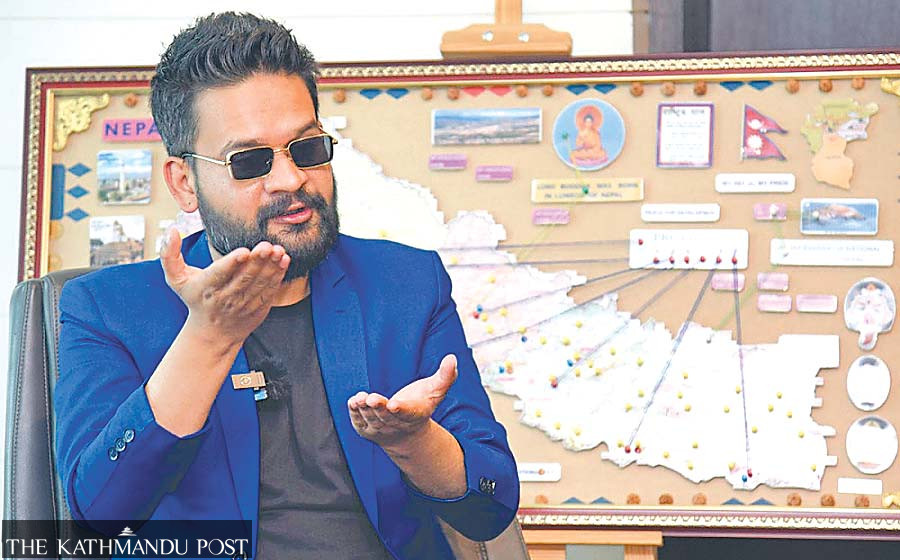National
Rift with federal government must not derail Kathmandu’s development: Experts
Ongoing tussle between Kathmandu’s mayor and the federal government has delayed the city’s budget and could disrupt essential services and projects.
Post Report
Despite uncertainty over crucial meetings that will decide budget ceilings, ward offices and departments under the Kathmandu Metropolitan City have drafted their own annual budgets for the fiscal year 2025-26.
Amid an ongoing rift with the federal government, Kathmandu Mayor Balendra Shah has not called meetings of the resource estimation and budget ceiling determination committee, the municipal assembly, and the executive committee, which has delayed the metropolitan city’s budget.
“We missed the deadline for the new fiscal year’s budget,” said Dhurba Kumar Kafle, assistant spokesperson at the city office. “We [civil servants] have already prepared an annual budget plan, which will be presented at the Mayor’s instruction.”
Most local units, including five of the six metropolitan cities in the country, have unveiled their annual budgets on June 24.
As per the Local Government Operation Act and the Inter-Governmental Financial Management Act, local governments must present their annual budget by Asar 10 (June 24 this year).
However, KMC failed to unveil its annual budget as Mayor Shah has not convened an executive meeting for the last six months. His reluctance to convene crucial meetings stems from a dispute with the federal government, which began after he sent the chief administrative officer on leave over corruption allegations.
Mayor Shah had sent Chief Administrative Officer Saroj Gruragain on leave on December 23, accusing him of being involved in financial irregularities related to the approval of a construction plan for Kathmandu Tower at the Old Bus Park.
However, the federal government did not replace Guragain with another official as Shah expected, and instead reinstated Guragain himself amid Shah’s objection in the first week of April.
The city office had deployed municipal police to stop Guragain from entering the office. But their attempts failed as Deputy Mayor Dangol along with other ward chiefs close to the ruling parties, and staffers, who had remained unpaid for months due to the chief administrative officer’s absence, assisted him in resuming office.
It has already been six months since the last executive meeting was held at least once every month as per the Local Government Operation Act 2017.
Earlier, 41 out of 42 executive members, including Deputy Mayor Dangol, had urged Mayor Shah to convene an urgent meeting of the city’s municipal executive. Ward chiefs and bureaucrats serving in the metropolis have been requesting an executive meeting, but to no avail.
KMC’s spokesperson, Nabin Manandhar, said he is also unaware of when the meetings will be held and when the annual budget will be unveiled.
Experts say that differences between the elected representatives and disputes with the federal government should not hamper the development and other regular works of the metropolitan city.
“The metropolis cannot collect revenue if it fails to pass a new budget by July 16, which means it cannot pay staff salaries and spend on development works,” said Balananda Paudel, former chair of National Natural Resources and Fiscal Commission, which makes recommendations to the governments regarding revenue distribution, equalisation grants, conditional grants, internal borrowing and sharing of natural resources among the three tiers of governments.
According to Paudel, who also led the now defunct Local Level Restructuring Commission, the metropolis will also lose performance-based grants from federal governments if it fails to bring a new budget within July 16. “And locals will have to bear the cost of the inefficiency of elected representatives,” he added.
Experts say that disputes between elected representatives and bureaucracy at local, provincial, and federal governments are not new. There are also disputes between provincial governments and the federal government, but such disputes should not hamper the development activities directly affecting the general public's work and services, according to them.
“As the guardian of the metropolis, Mayor Shah shoulders more responsibilities and must work to sort out differences and bring the budget on time,” said former government secretary Kishor Thapa. “This ongoing farce should be stopped, and all elected representatives should focus on the responsibilities entrusted to them by the people.”




 10.12°C Kathmandu
10.12°C Kathmandu














